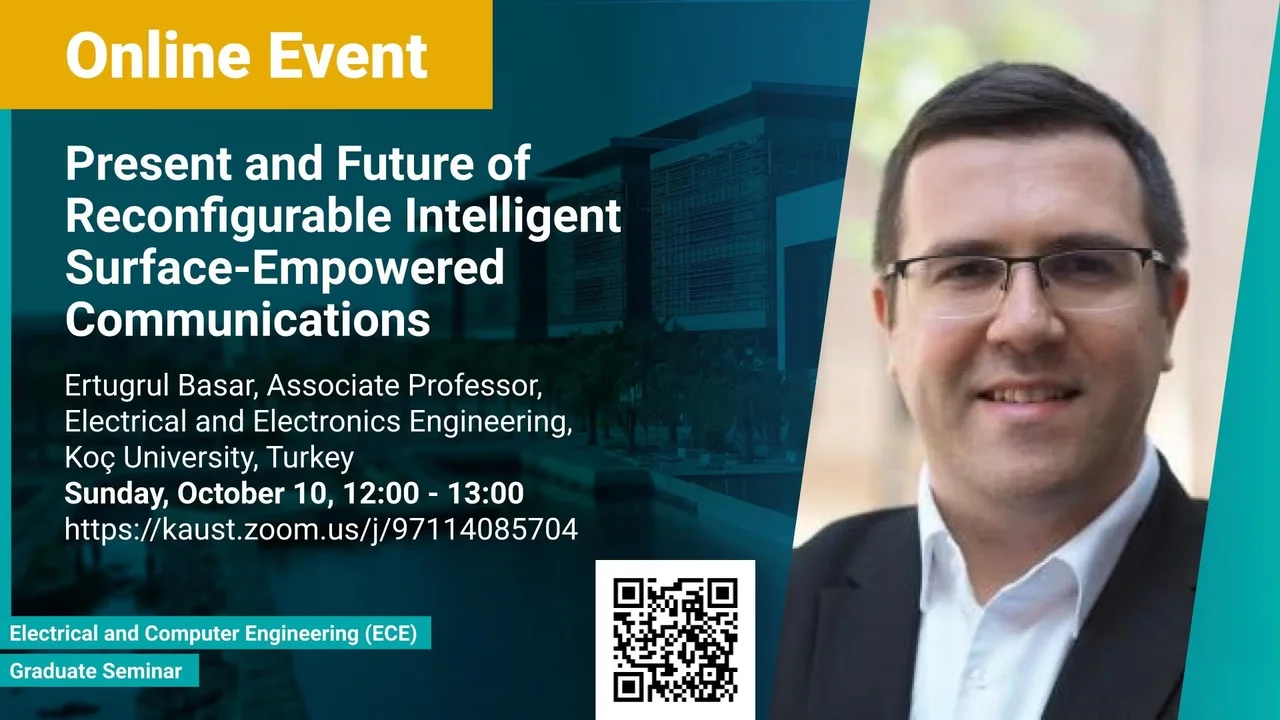
Present and Future of Reconfigurable Intelligent Surface-Empowered Communications
- Ertugrul Basar, Associate Professor, Electrical and Electronics Engineering, Koç University
KAUST
Signal processing and communication communities have witnessed the rise of many exciting communication technologies in recent years. Notable examples include alternative waveforms, massive multiple-input multiple-output (MIMO) signaling, non-orthogonal multiple access (NOMA), joint communications and sensing, sparse vector coding, index modulation, and so on.
Overview
Abstract
Signal processing and communication communities have witnessed the rise of many exciting communication technologies in recent years. Notable examples include alternative waveforms, massive multiple-input multiple-output (MIMO) signaling, non-orthogonal multiple access (NOMA), joint communications and sensing, sparse vector coding, index modulation, and so on. It is inevitable that 6G wireless networks will require a rethinking of wireless communication systems and technologies, particularly at the physical layer (PHY) since the cellular industry reached another important milestone with the development of 5G wireless networks with diverse applications. Within this perspective, this talk aims to shed light on the rising concept of reconfigurable intelligent surface (RIS)-empowered communications towards 6G wireless networks. We discuss the recent development in the field and put forward promising candidates for future research and development. Specifically, we put our emphasis on active, transmitter-type, transmissive-reflective, and standalone RISs, by discussing their advantages and disadvantages compared to reflective RIS designs. Finally, we also envision an ultimate RIS architecture, which can adjust its operation modes dynamically, and introduce the new concept of PHY slicing over RISs towards 6G wireless networks.
Brief Biography
Ertugrul Basar received his Ph.D. degree from Istanbul Technical University in 2013. He is currently an Associate Professor with the Department of Electrical and Electronics Engineering, Koç University, Istanbul, Turkey and the director of Communications Research and Innovation Laboratory (CoreLab). His primary research interests include beyond 5G systems, index modulation, intelligent surfaces, waveform design, and signal processing for communications. Dr. Basar currently serves as a Senior Editor of IEEE Communications Letters and an Editor of IEEE Transactions on Communications and Frontiers in Communications and Networks. He is a Young Member of Turkish Academy of Sciences and a Senior Member of IEEE. He is also the founding Academic Chair of the newly established IEEE.